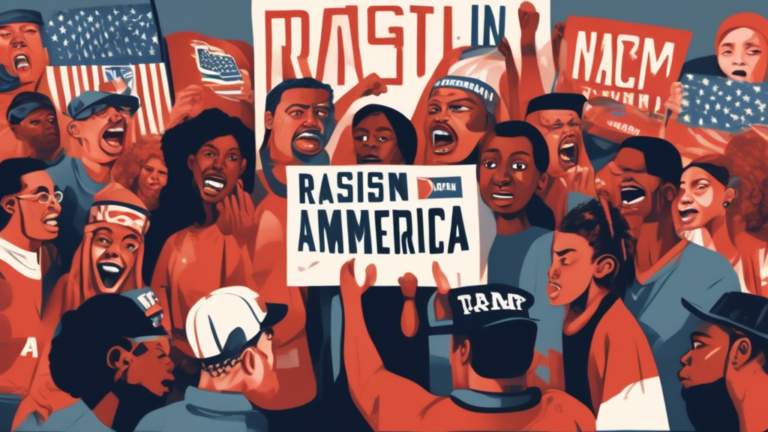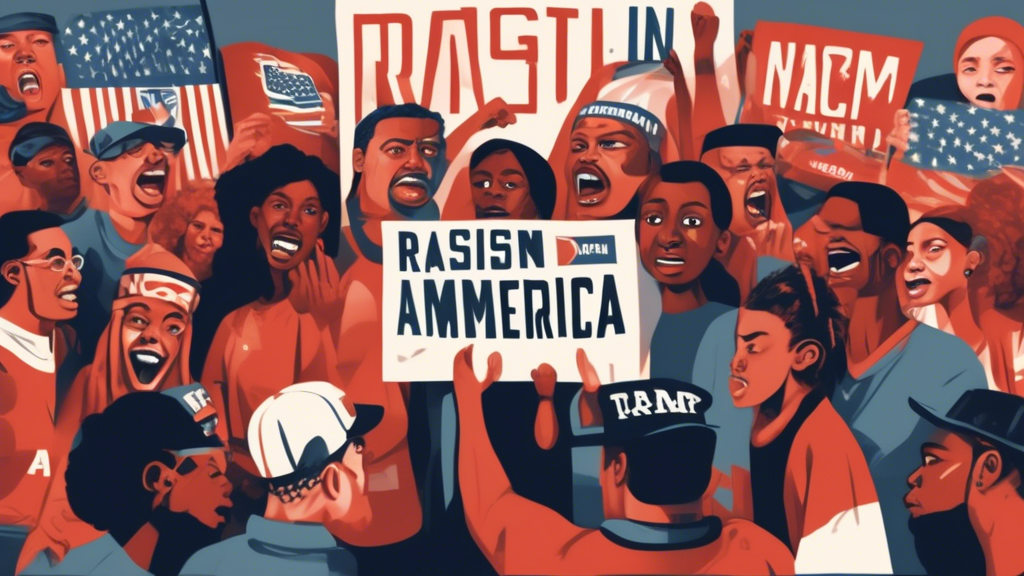

Former NFL Player Sparks Debate with Claim That ‘Black People Are More Racist Than White People’ Because of Trump Hatred
A former NFL star has ignited a firestorm of controversy with his recent comments suggesting that Black Americans exhibit greater racism than their White counterparts, attributing this sentiment to a widespread dislike of former President Donald Trump. The remarks, made during an interview, have prompted discussions that tap into the fraught intersection of race, politics, and identity in America.
Controversial Statements
The player in question, whose identity has become a focal point amid the outcry, argued that the resentment towards Trump among some Black individuals reflects a form of racial bias that parallels the racism historically experienced by people of color. His assertion posits that intense opposition to Trump is rooted not only in political disagreement but also in a deep-seated prejudice that he claims has grown in response to the former president’s rhetoric and policies.
Racial Tensions and Trump
This controversy comes in the context of ongoing racial tensions that have been exacerbated by Trump’s presidency. His approach often included inflammatory comments regarding athletes who protested during the national anthem, a movement that highlighted systemic racism and police brutality. Trump’s rhetoric has frequently drawn accusations of nativism and racism, further complicating the conversation around race in America.
Public Reaction
The backlash against the NFL player’s statements was swift and robust. Activists and commentators have widely condemned the remarks as misguided and incendiary, insisting that they detract from the historical realities of racism faced by Black Americans. Critics argue that such claims ignore the systemic inequities ingrained within American society, framing the discourse around race as a binary conflict rather than a nuanced exploration of prejudice in all its forms.
Political Context
This debate also underscores the politicization of race, particularly as the nation approaches the 2024 election cycle. Discussions surrounding Trump and his divisive policies have become increasingly central to electoral strategies. Critics of the former president contend that his administration used racially charged language to galvanize certain voter demographics—an approach that has sparked further racial divides across the country.
Analogies and Historical Context
Moreover, the conversation has drawn parallels to historical analogies that have provoked controversy in recent discussions about race. Comparisons made by various public figures—such as the analogy involving ‘house slaves’ and ‘field slaves’—have been criticized for oversimplifying complex issues and undermining the gravity of the fight against systemic racism. Such discussions often evoke the legacy of figures like Malcolm X, whose contributions were rooted in the genuine struggles against oppression and inequality.
Conclusion
The former NFL player’s comments are emblematic of a broader national dialogue grappling with the complexities of race, identity, and politics in America. As reactions continue to unfold, the conversation is likely to remain polarized, reflecting deeper societal fractures and the ongoing quest for understanding and equity in a divided nation.